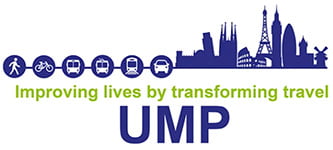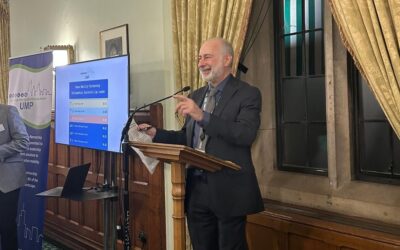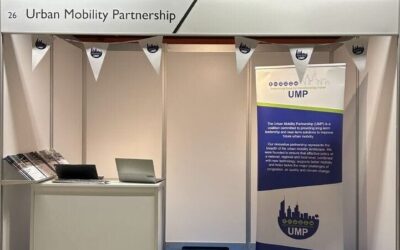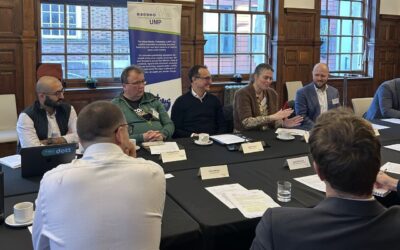Ruth Harper (DfT), Stelios Rodoulis (Bus Centre of Excellence), Rhiannon Evans (Active Travel England), Liam Henderson (Rail Innovation Group), Julian Scriven (UMP)
Last week, the Urban Mobility Partnership, together with Intelligent Transport Systems UK, convened representatives from across the transport sector – combined authorities, national bodies, transport organisations and industry partners – to get practical about what the English Devolution Bill means for real-world delivery.
It was an exciting day as we explored how new powers over traffic management, micromobility, and transport planning will shape the way regions deliver for their communities, as well as visions for the future of transport.
Hosted by Shoosmiths in Birmingham, the day showcased the momentum building around devolved powers and provided the launchpad for our report on how stronger public–private partnerships can turn ambition into better journeys, lower carbon and local growth.
For a snapshot of the event, watch our short video!
See below for more information on our talks and panels.
Keynote from Henri Murison, Chief Executive, Northern Powerhouse Partnership
Henri emphasised how devolved settlements, such as in Greater Manchester, are already unlocking productivity when they improve connectivity at city-region level. The next phase must keep people, place and decarbonisation at the centre. Devolution is an enabler, but delivery depends on aligning funding, accountability and local needs.
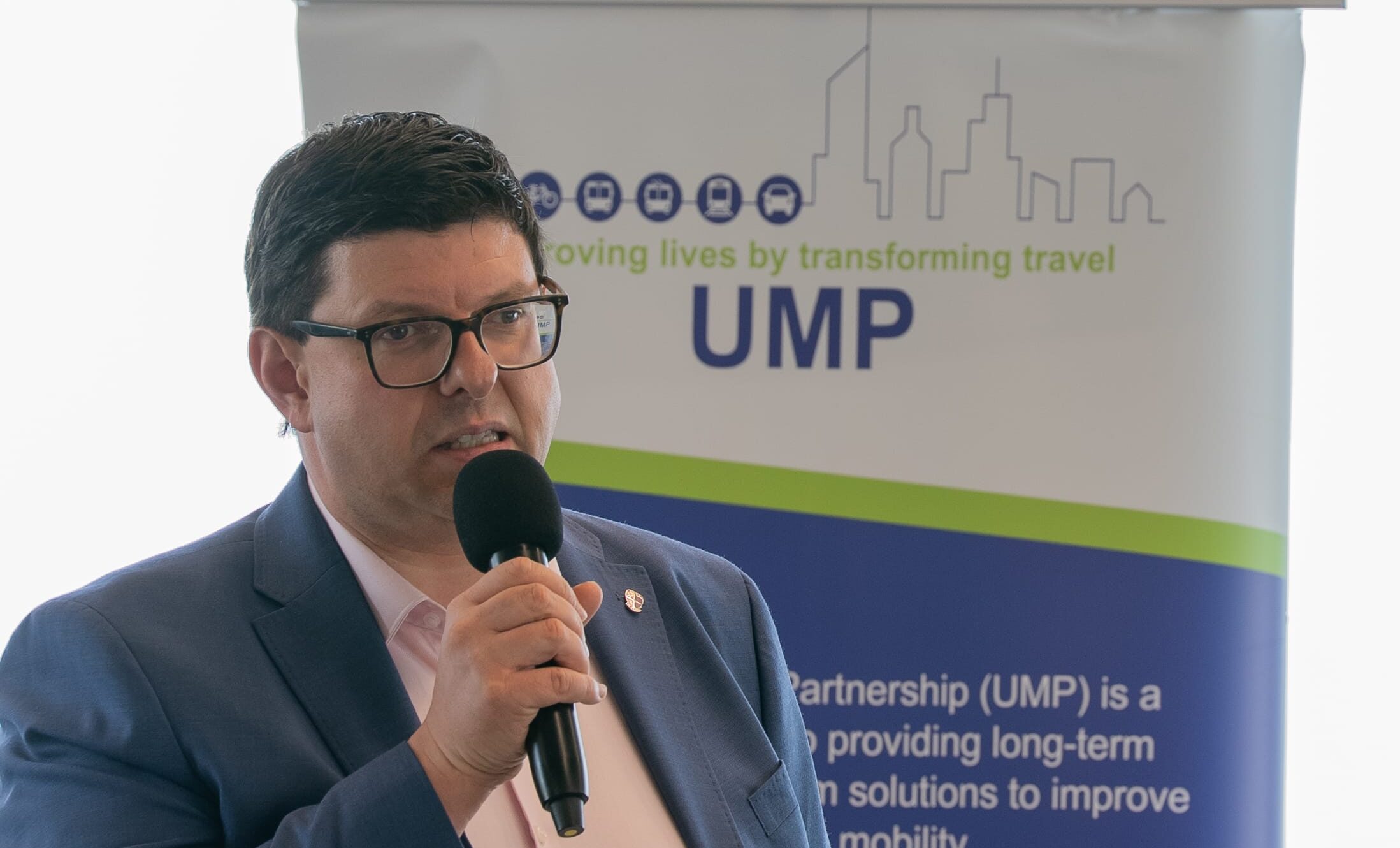
Henri Murison, Chief Executive of the Northern Powerhouse Partnership, delivering the keynote speech
Views from Combined and Strategic Authorities
Chaired by Intelligent Transport Systems UK’s Max Sugarman, the first panel brought together voices from Cambridgeshire & Peterborough Combined Authority, Liverpool City Region, the Local Government Association, Transport for Greater Manchester and the West Midlands. Panellists welcomed strengthened powers while underlining two essentials: multi-year, secure funding and flexible, place-based agreements that let mayors plan with confidence and deliver at pace.
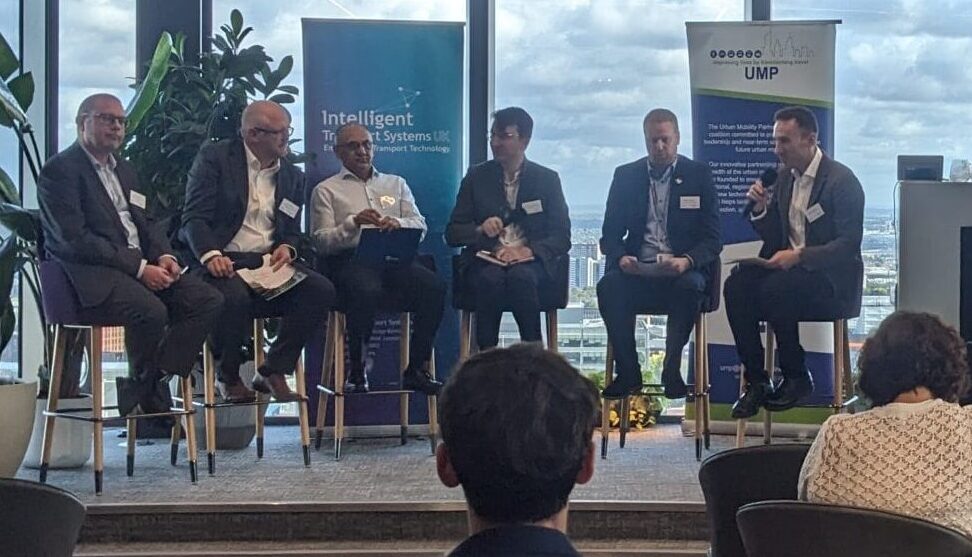
Huw Jenkins, (Liverpool City Region CA), Tim Bellamy (Cambridgeshire & Peterborough CA),
Kamal Panchal (Local Government Association), Nick Fairclough (TfGM), Adam Harrison (TfWM), Max Sugarman (ITS UK)
What devolution means for transport across modes
Chaired by Julian Scriven, the second session brought perspectives from the Department for Transport, Active Travel England, the Bus Centre of Excellence and the Rail Innovation Group. Discussion focused on how powers closer to place can enable experimentation in buses and shared micro-mobility, align funding streams, and build truly joined-up networks. National support remains pivotal for skills, best practice and coordination with the forthcoming Integrated National Transport Strategy.
The Power of Public–Private Partnerships
With contributions from Brompton Bike Hire, Dott and Shoosmiths, the third panel highlighted three takeaways: long-term licensing and funding certainty crowd in private investment and keep infrastructure moving; rail must be aligned across national and regional plans to avoid lagging the devolution journey; and outcome-focused procurement gives local authorities the flexibility to innovate, cut carbon and improve passenger experience.
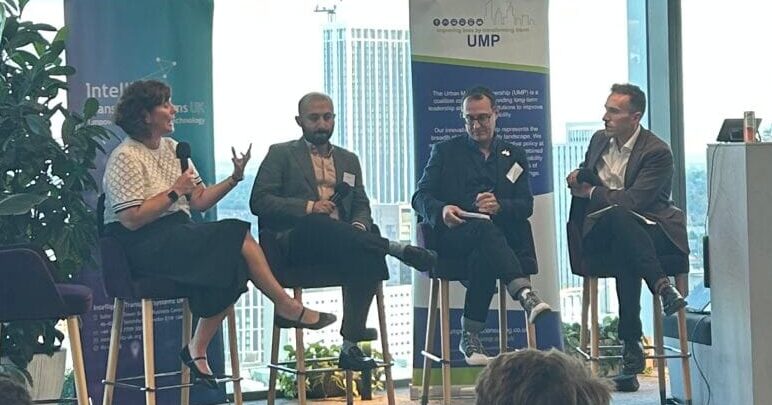
Michelle Craven-Faulkner (Shoosmiths), Iqbal Ahmed (Dott), Julian Scriven (Brompton), Max Sugarman (ITS UK)
Technology enabling devolved policy
In our fourth panel, representatives from Worldline, Uber, KPMG and Snapper Services explored how to translate devolved powers into better, more joined-up journeys. Priorities included a data-first approach that centres the customer and builds trust, integrated ticketing framed as a policy and commercial challenge (not just technical), and mixed operating models—DRT, ride-hailing, community transport and car clubs—to extend affordable access in rural areas.
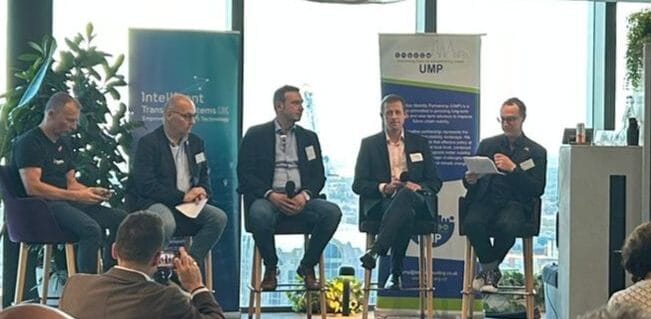
Miki Szikszai (Snapper Services Ltd), Martin Howell (Worldline), Adrian Ulisse (Uber), Ben Foulser (KPMG), Julian Scriven (UMP)
What we’re taking forward
Across the day, three messages stood out for UMP and partners:
- Stable, devolved funding and clear accountability are the foundation for delivery
- Outcome-led public-private collaboration accelerates decarbonisation and better passenger outcomes.
- Data-driven integration – especially around ticketing and information – will determine whether ambition becomes reliable, everyday journeys.
Thank you to all speakers, panellists and attendees for making this such a dynamic conversation, and to Shoosmiths for hosting, in a fitting venue for launching the discussion and spotlighting the role of partnerships in delivery.
